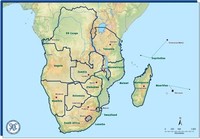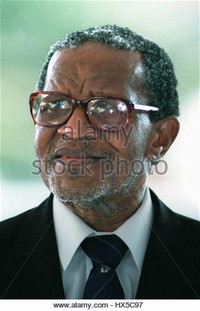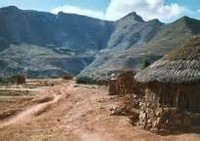Facts about Lesotho

Lesotho has received economic aid from a variety of sources, including the United States, the World Bank, Ireland, the United Kingdom, the European Union, and Germany.

Lesotho is working jointly with South Africa in the preservation and promotion of the Maloti/Drakensberg mountain range.

Lesotho is a member of the Southern African Customs Union (SACU), in which tariffs have been eliminated on the trade of goods with other member countries Botswana, Namibia, South Africa, and Swaziland.

The name Lesotho roughly translates into "the land of the people who speak Sotho."

Administratively, Lesotho is divided into ten districts, each headed by a district administrator.

Granted autonomy in 1965, its name changed when Lesotho gained full independence from the United Kingdom on October 4, 1966.

Completion of the first phase of the project has made Lesotho almost completely self-sufficient in the production of electricity and generated approximately $24 million annually from the sale of electricity and water to South Africa.

The Maloti Mountains are found in the highlands of Lesotho and named the Drakensberg in South Africa.

Lesotho is geographically surrounded by South Africa and economically integrated with it as well.

Lesotho's geographic location makes it extremely vulnerable to political and economic developments in South Africa.

Historically, Lesotho has maintained generally close ties with the United Kingdom (Wales in particular), Germany, the United States and other Western states.

Lesotho, officially the Kingdom of Lesotho, is a landlocked country entirely surrounded by South Africa.

Lesotho is the only independent state in the world that lies entirely above 3,300 feet above sea level (1,000 meters).

Lesotho's economy is based on exports of water and electricity sold to South Africa, manufacturing, agriculture, livestock, and to some extent the earnings of laborers employed in South Africa.

Prime Minister Ntsu Mokhehle formed a new party, the Lesotho Congress for Democracy (LCD), and was followed by a majority of Members of Parliament, which enabled him to form a new government.

The government of Lesotho was initially slow to recognize the scale of the crisis, and its efforts to date in combating the spread of the disease have had limited success.

According to the Lesotho Bureau of Statistics, in 2004 life expectancy was estimated at 36.7 years.

Job creation is critical, but Lesotho has too small a private sector to provide jobs for every person in its labor force.

Lesotho has taken advantage of the African Growth and Opportunity Act (AGOA) to become the largest exporter of garments to the United States from sub-Saharan Africa.



